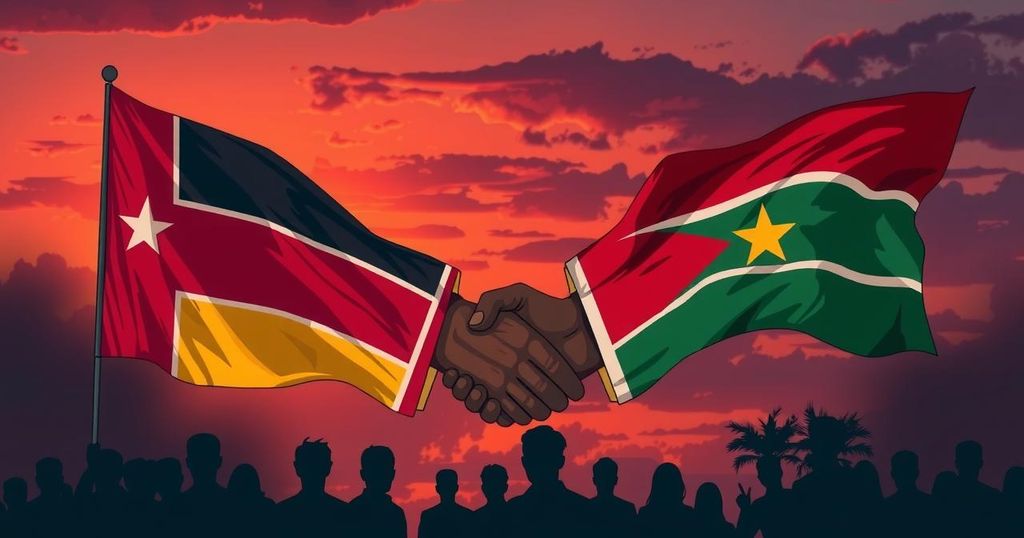Trump Administration Revokes Visas for South Sudanese Amid Deportation Dispute

Secretary of State Marco Rubio revoked all South Sudanese visas due to the country’s failure to accept deportees in a timely manner. This decision signifies the Trump administration’s intensified focus on deportations. Lawsuits have emerged from potential deportees, while past visa sanctions against uncooperative countries remain relevant. The Biden administration, however, has offered temporary protections to South Sudanese migrants amid ongoing violence in their home country.
On Saturday, Secretary of State Marco Rubio announced the revocation of visas for all South Sudanese passport holders. This decision was made due to the transitional government of South Sudan’s refusal to accept its citizens in a timely manner for deportation by the Trump administration. Rubio indicated that further issuance of visas would be restricted to prevent entry as a direct consequence of South Sudan’s inaction. He conveyed that these actions would be reassessed when South Sudan demonstrates full cooperation with U.S. repatriations.
Rubio’s actions reflect a continuity of the Trump administration’s aggressive stance on deportations, aimed at expediting the removal of foreign nationals. This is reminiscent of earlier threats made by President Trump against Colombian officials over similar issues regarding their citizens’ repatriation. Historically, delays by countries to accept deportees have led to visa sanctions against them by U.S. officials.
Amidst these developments, lawsuits have been filed by some potential deportees against the administration, resulting in temporary restraining orders by various judges. Former Justice Department official Lucas Guttentag criticized Rubio’s decision, viewing it as discriminatory and harmful to innocent visa holders, rather than fostering productive diplomatic relations.
In recent months, the administration has actively pursued a mass deportation campaign across the United States, with Rubio stating that he had revoked potentially over 300 visas, with further actions imminent. A notable case was that of Óscar Arias Sánchez, the former president of Costa Rica, whose visa was revoked subsequent to his criticisms of the administration.
The issue of deportation has historically presented challenges for U.S. officials, particularly when dealing with countries reluctant to accept their own citizens. During Trump’s first term, visa sanctions were imposed on uncooperative nations, affecting individuals who were abroad seeking visas. In contrast, the Biden administration announced in 2023 a Temporary Protected Status program to safeguard South Sudanese migrants from deportation due to violence in their homeland, extending protections until May.
The Trump administration’s visa revocation for South Sudanese citizens underscores a continued commitment to expedite deportations, reflecting broader immigration enforcement policies. The controversy surrounding this decision highlights the tension between U.S. foreign policy and diplomatic relations, particularly in regard to countries reluctant to accept their deported citizens. The administration’s approach also encounters judicial challenges, while contrasting responses from the Biden administration demonstrate a shift towards providing protections for certain vulnerable populations.
Original Source: www.nytimes.com






